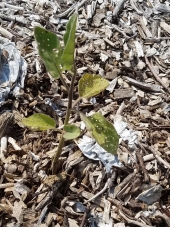
 2
2





 4
4




- Tim's Homestead Journal - Purchase a copy of Building a Better World in Your Backyard - Purchase 6 Decks of Permaculture Cards -
- Purchase 12x Decks of Permaculture Cards - Purchase a copy of the SKIP Book - Purchase 12x copies of Building a Better World in your Backyard
 3
3




"When the whole world is running towards a cliff, he who is running in the opposite direction appears to have lost his mind." C.S. Lewis
Visit https://themaineingredient.com for organic, premium dried culinary herbs that are grown, processed, and packaged in the USA.




Invasive plants are Earth's way of insisting we notice her medicines. Stephen Herrod Buhner
Everyone learns what works by learning what doesn't work. Stephen Herrod Buhner
 2
2




 4
4




With appropriate microbes, minerals and organic matter, there is no need for pesticides or herbicides.
 2
2




Skyler Weber wrote:I am going to say something controversial, but here we go, I don't think most people need or could even benefit from a soil test.

|
What a stench! Central nervous system shutting down. Save yourself tiny ad!
Learn Permaculture through a little hard work
https://wheaton-labs.com/bootcamp
|


